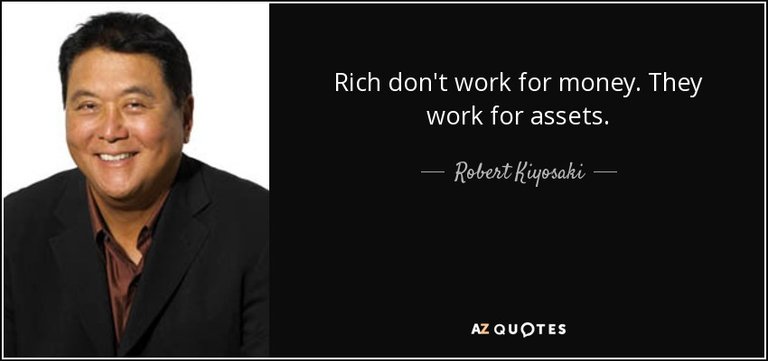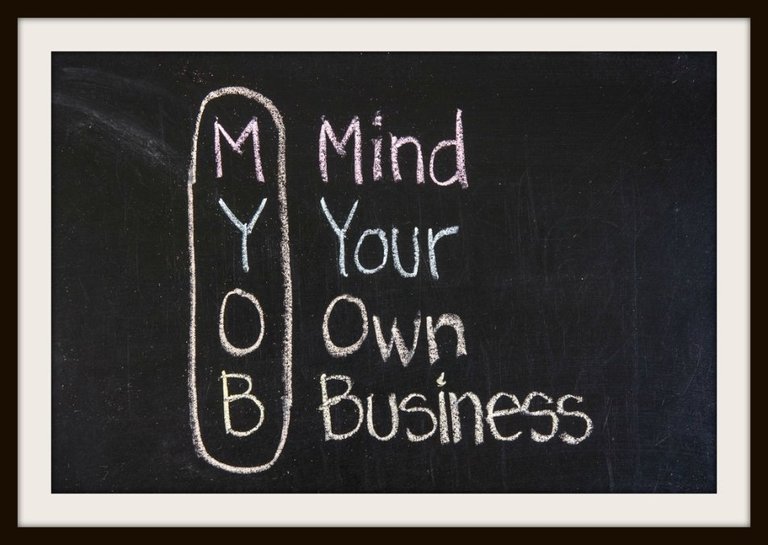
The Book in Three Sentences
- Rich Dad Poor Dad is about Robert Kiyosaki and his two dads—his real father (poor dad) and the father of his best friend (rich dad)—and the ways in which both men shaped his thoughts about money and investing.
- You don’t need to earn a high income to be rich.
- Rich people make money work for them.
The Five Big Ideas
- The poor and the middle-class work for money. The rich have money work for them.
- It’s not how much money you make that matters. It’s how much money you keep.
- Rich people acquire assets. The poor and middle class acquire liabilities that they think are assets.
- Financial aptitude is what you do with money once you make it, how you keep people from taking it from you, how to keep it longer, and how you make money work hard for you.
- The single most powerful asset we all have is our mind.
Chapter 1: The rich don’t work for money
At a very young age, Robert Kiyosaki had his first business partner, his schoolmate Mike. They worked for Mike’s dad, who taught them lessons on how to make money. The first rule they learn was that the rich don’t work hard for money, their money works hard for them. The first thing Mike’s dad did was to pay Robert and Mike 10 cents/hr so that they could see what is like to get a salary they find short – and imagine how would that be if multiplied over the time-span of 50 years. Then, rich dad had them working for free, which taught them two lessons: 1) most people are guided by fear (of not being able to pay for their bills) or desire (e.g. greed) and 2) we need to think of alternatives to make money, which Robert and Mike did – at a very a young age they set up a small library room, where they provided leftover magazines to other kids for a small fee.

Chapter 2: Why teach financial literacy?
Most people buy a house at mortgage and consider it to be an asset. However, in businessman’s vocabulary, it’s actually a liability because the house is not earning anything. The house is eating up resources of the person who has bought it on mortgage.
In school, people are taught to earn good grades, get good jobs and be good employees. Generally, financial literacy component is not taught. Therefore, people with job generally struggle to meet their day to day expenses, middle class purchase liabilities considering it to be an asset (e.g. a house bought on mortgage or a car on lease!) while rich people construct a sound asset base which generates income for purchase of other assets.
Rich dad taught author to buy house once there is another asset which generates enough cash flow to enable the person buy a house. What are the assets of rich people? Those include: Real Estate, apartments generating rents and businesses being managed by managers and generating cash. A person can start with stocks, bond and mutual funds but these are not at all a substitute of a business which generates cash flows. Rich Dad’ lesson: Learn the difference between an asset and a liability and think how to create income generating assets.
Chapter 3: Mind your business
n this chapter, the author slowly introduces the concept of real estate investing and uses McDonald’s as an example. He points out that McDonald’s may not make the best hamburgers in the world, but owns the “most valuable intersections and streets in America.” The author remarks that individuals need to mind their own business if they wish to become financially self-sufficient. They shouldn’t mind their employer’s business, they should strive for ways to become their own boss and nurture their own businesses.
The author continues his discussion on building assets. To him, real assets are anything with value – stocks, bonds, mutual funds, income-producing real estate, notes, royalties from intellectual property, etc.
This chapter also reveals the author’s investment preferences: real estate and stocks. For real estate, he says he starts small, and trades his properties for bigger ones and then delays paying taxes on capital gains through one IRS mechanism.

Hi! I am a robot. I just upvoted you! I found similar content that readers might be interested in:
https://wisdomfrombooks.files.wordpress.com/2009/11/rich-dad-poor-dad-week-11.pdf